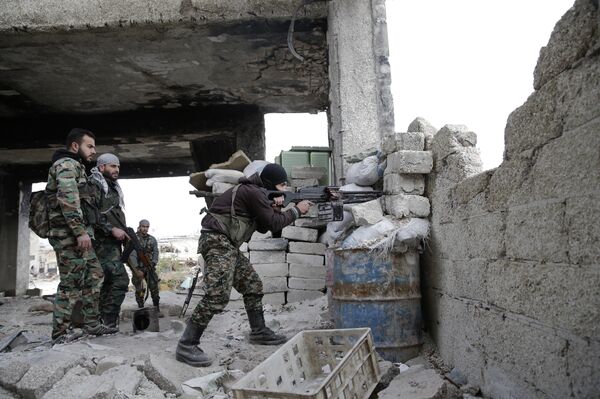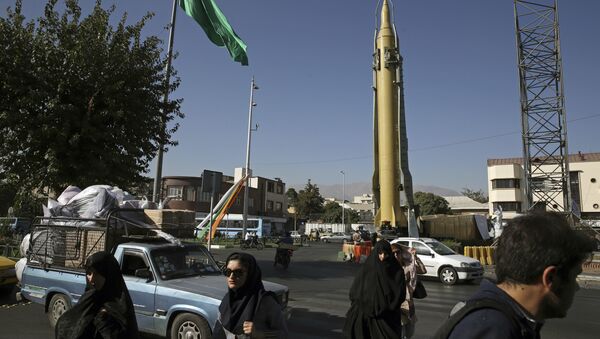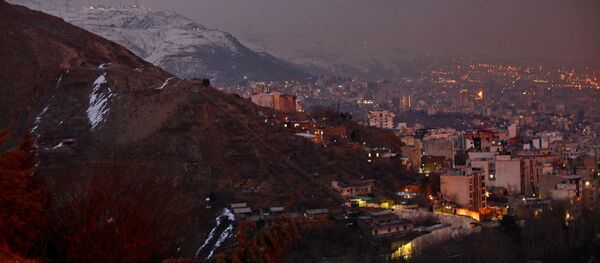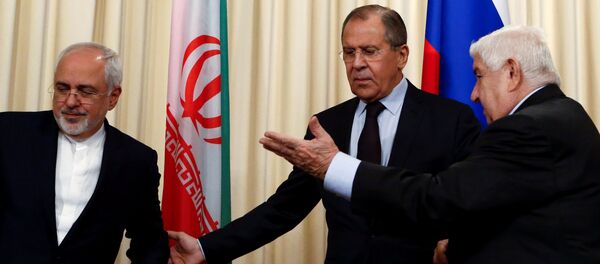It's impossible to win anything having picked fights with both Daesh and Iran in the Middle East, Sharmine Narwani, geopolitical analyst and expert in Middle Eastern affairs, writes in her op-ed for the American Conservative referring to US President Donald Trump's harsh rhetoric toward the Islamic Republic.
In his recent interview with Fox News Trump branded Iran as "the number one terrorist state."
Two days later the US President reiterated that Iran is "number one in terror" on his Twitter account.
"I don't know Putin, have no deals in Russia, and the haters are going crazy — yet Obama can make a deal with Iran, #1 in terror, no problem!" he tweeted.
I don't know Putin, have no deals in Russia, and the haters are going crazy — yet Obama can make a deal with Iran, #1 in terror, no problem!
— Donald J. Trump (@realDonaldTrump) 7 февраля 2017 г.
In response, Russia signaled that it doesn't agree with such an approach.
"We do not agree with this approach," Russian presidential spokesman Dmitry Peskov said Monday, "We have cooperated on a range of issues [with Iran]. We value our trade and economic ties which, we hope, will further develop."
For his part, Russian Foreign Minister Sergei Lavrov highlighted that Tehran has never been spotted having ties with Daesh, al-Nusra Front or other terrorist groups.
"Iran has never been seen having any ties with Daesh or al-Nusra Front, or any other structure affiliated with these terrorist organizations and included in the relevant UN Security Council list," Lavrov said.
"We have long advocated the idea of creating a unified anti-terrorist front. I am convinced that if we have an objective approach toward potential participants of such a coalition, Iran, of course, needs to be part of our common effort," Lavrov emphasized.
Narwani shares a similar stance: "The Islamic Republic of Iran, after all, is allied with both Damascus and Baghdad. Iran trains, arms, or guides the armies and militias now successfully mowing down jihadists."

"Every time the US intervenes to isolate or diminish Iran's role, it only undermines the regional ground forces that do the heavy lifting against ISIS [Daesh] and al-Qaeda," the geopolitical analyst wrote, adding that terror groups like Daesh, al-Qaeda, and other Salafist militants view Tehran as their "core regional adversary."
The analyst emphasized that Iran remains an influential regional player that couldn't be excluded from the potential joint anti-terror coalition.
She recalled that Trump made a promise at his inauguration to "seek friendship and goodwill with the nations of the world." Trump also added that "it is the right of all nations to put their own interests first."
"From this must come the recognition that Russia, Syria, Iran, Iraq, and Lebanon also want to pursue their own interests, in their own regions," Narwani stressed.
However, it appears that it is not only the emergence of Iran that has prompted concerns in Washington.
Speaking to Sputnik Wednesday, political analyst Alexander Kazakov suggested that Trump is "most likely worried about the emerging triangle, comprising Russia, Turkey and Iran."
"There is nothing surprising about it. This triangle will de facto control the situation in the Middle East. The United States has been present in the region for a long time and has no intention of withdrawing. This is why this triangle is a serious issue for the US," Kazakov explained in his interview with Sputnik.
Indeed, the Astana talks indicated that "the troika" has managed at long last to bring the Syrian warring parties to the negotiating table.
It's up to President Trump, Narwani wrote, whether or not to join the coalition. If he decides to isolate Iran US efforts to eradicate Daesh may prove futile.



